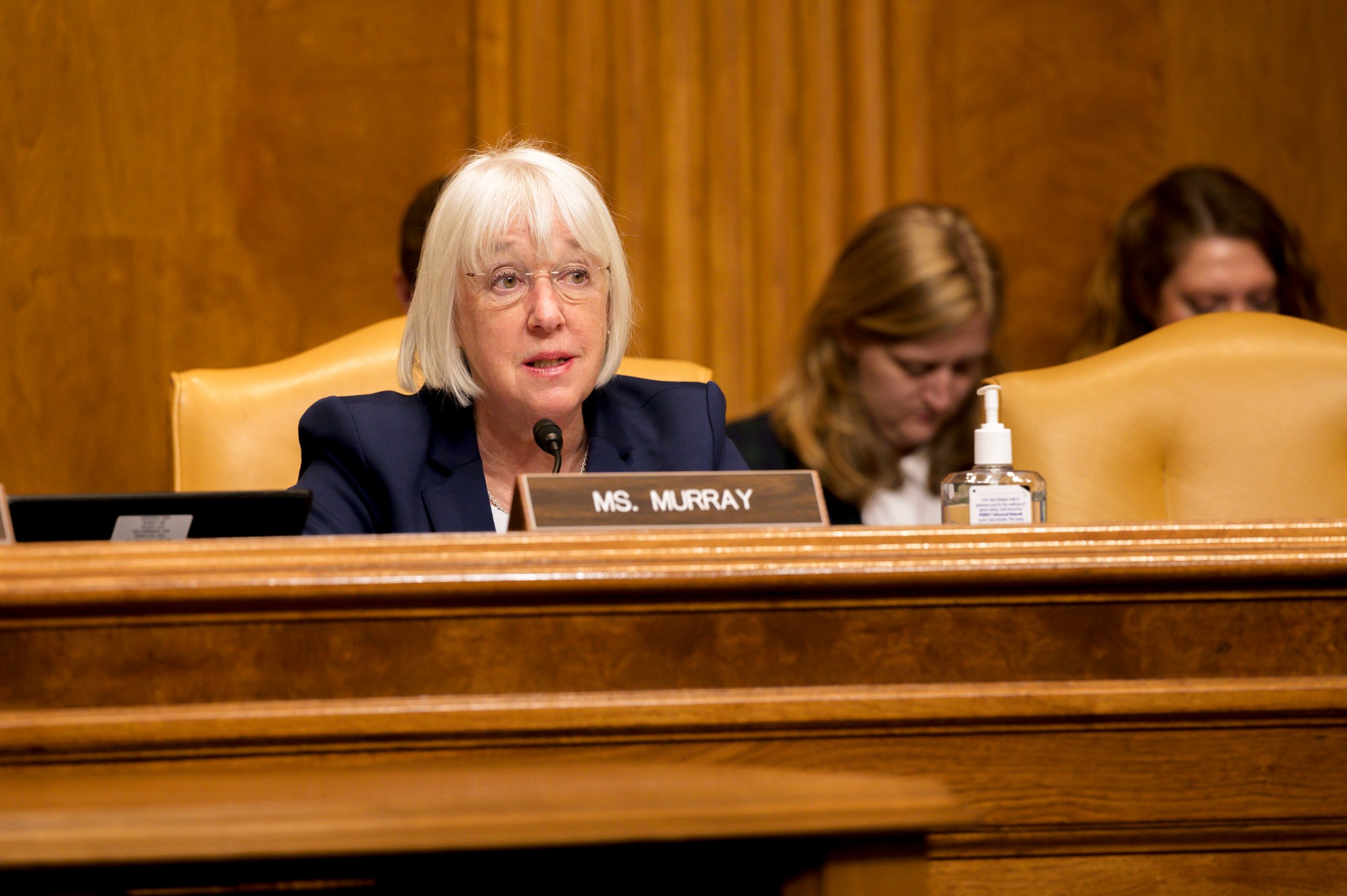Funding stems from BEAD program, secured in the Murray & Cantwell-supported Bipartisan Infrastructure Law
Across the State of Washington, approx. 264k households still lack reliable and affordable internet access
WASHINGTON, D.C. – Today, U.S. Senators Patty Murray (D-WA), Chair of the Senate Appropriations Committee, and Maria Cantwell (D-WA), Chair of the Senate Committee on Commerce, Science, and Transportation, announced that the State of Washington will receive $1,227,742,066 from the National Telecommunications and Information Administration (NTIA) to help expand broadband access to areas that remain without high-speed broadband.
Congress established and funded the Broadband Equity, Access, and Deployment (BEAD) program in the Bipartisan Infrastructure Law (BIL). The new program, which is administered by the Department of Commerce, is providing a block grant to the Washington State Broadband Office (WSBO), which will determine how to invest the allocation within the state.
“With more than $1.2 billion dollars for badly needed high-speed internet infrastructure coming to Washington state, this investment is nothing short of transformative,” said Senator Murray. “This is the biggest investment ever in high-speed internet access and digital inclusion in Washington and it’s going to create meaningful opportunities for families and small businesses in every part of our state, all while creating good-paying jobs and connecting communities. It’s great to see funding we passed in the Bipartisan Infrastructure Law getting out the door to bring Washington state one big step closer to guaranteeing reliable access to high-speed internet for everyone.”
“The COVID pandemic laid bare just how crucial fast and affordable internet access is for all Washingtonians. But for more than a quarter of a million households in the State of Washington, broadband remains inaccessible,” Senator Cantwell said. “This major new broadband investment will help ensure that more Washingtonians – from patients booking a telehealth appointment, to students filing an assignment, to small business owners connecting with customers – are able to fully participate in our 21st Century economy.”
“In 2023, affordable high-speed internet is not a luxury; it’s a necessity. With this historic $1.2 billion investment we are going to create good paying jobs and ensure every Washingtonian can unlock the internet’s full potential,” said U.S. Secretary of Commerce Gina Raimondo. “Thanks to the Bipartisan Infrastructure Law and the leadership of Senator Cantwell and Senator Murray, we will be able to connect everyone in Washington to the full potential of the digital economy.”
Nationwide, the Department of Commerce announced $42.45 billion in BEAD program funding today – the largest internet funding announcement in history. The State of Washington received the tenth highest allocation. Although Washington state is among the highest-ranked states for overall broadband subscription rates, the WSBO reports that 9% of households in the state lack a broadband internet subscription, which translates to roughly 264,000 Washington state households.
Across the United States, nearly 8.5 million locations lack access to high-speed internet service, and millions more struggle with limited or unreliable internet options. Last year, the Biden Administration launched the Internet for All initiative with $65 billion from the BIL and $25 billion from the American Rescue Plan, and several other high-speed internet programs.
A longtime advocate for expanding broadband access, Sen. Murray worked to secure $65 billion in the Bipartisan Infrastructure Law to ensure that every family in America has access to reliable, high speed internet. Notably, the Bipartisan Infrastructure Law included Sen. Murray’s Digital Equity Act to help close the digital divide by funding activities that provide individuals and communities with the skills and technologies necessary to take full advantage of internet connection. Additionally, as a lead author of the American Rescue Plan, Sen. Murray worked to include $7 billion in emergency E-Rate funding in the legislation for schools and libraries to cover the costs of equipment and broadband connections for students, staff, and patrons—and she repeatedly pushed the FCC to take action to help close the homework gap during the pandemic.
###


